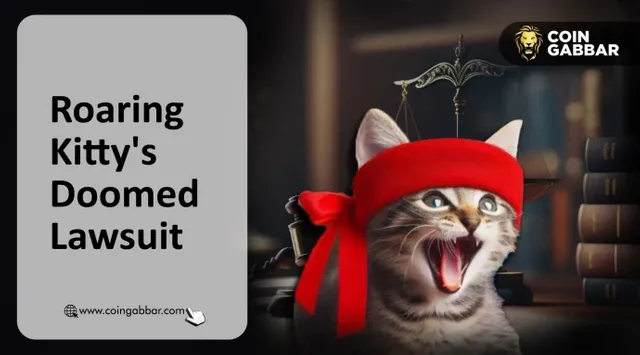Roaring Kitty Faces Securities Fraud Claims in ‘Doomed’ GME Lawsuit
Keith Patrick Gill aka Roaring Kitty aka the man behind GameStop (GME) hype, is getting sued by Martin Radev for security fraud over his role in promoting "meme stock" Game Stop.However, the lawyers and advisors are saying the case is "doomed" to fail.
This case emerges from his recent social media activities which led to significant fluctuations in GameStop (GME) stock prices between May and June 2023.
The Allegations On Roaring Kitty
The lawsuit, filed on June 28 in the Eastern District of New York, accuses Gill of orchestrating a "pump and dump" scheme. The complaint alleges that Gill failed to disclose his purchase and sales of GameStop options, misleading his followers and causing financial losses to some investors.
Source: CourtListener
The plaintiff, Martin Radev, represented by the Pomerantz law firm, claimed that he was financially harmed by Gill's actions. Radev's investments included 25 shares of GME and three call options starting in mid-May, which he asserts were influenced by Gill's misleading posts.
Roaring Kitty’s Market Influence
Gill, who had taken a two-year break from social media, re-emerged on May 13, posting a series of cryptic memes on his X account (formerly Twitter). This triggered a dramatic 180% surge in GameStop's stock price, escalating from $17.46 to $48.75 by the end of the next trading day.
On June 2, Gill revealed on Reddit that he held a significant position in GameStop, including 5 million shares and 120,000 GME call options with an expiry date of June 21, 2024. This disclosure led to another surge in GME’s stock price, closing above $45 that day.
By June 13, Gill announced that he had exercised all 120,000 options calls, realizing substantial gains, which he reinvested into further GameStop shares.
Challenges in Proving Fraud
Rosen emphasizes that for a fraud case to succeed, it must demonstrate that the accused intentionally misled investors by failing to disclose critical information. He argues that Gill's social media posts, consisting of random memes, do not meet the standard of provable or disprovable claims, making it highly unlikely for the lawsuit to succeed in court.
Conclusion
The lawsuit against Keith Patrick Gill, also known as Roaring Kitty, presents a complex challenge in the legal landscape of securities fraud. While the allegations suggest a "pump and dump" scheme through social media influence, the case's success hinges on proving intentional deception. However, legal experts, are skeptical about the lawsuit's viability, pointing out the difficulty in establishing that Gill's cryptic social media posts were materially misleading.
Visit: www.coingabbar.com

Spam de Chat GPT
Downvoting a post can decrease pending rewards and make it less visible. Common reasons:
Submit